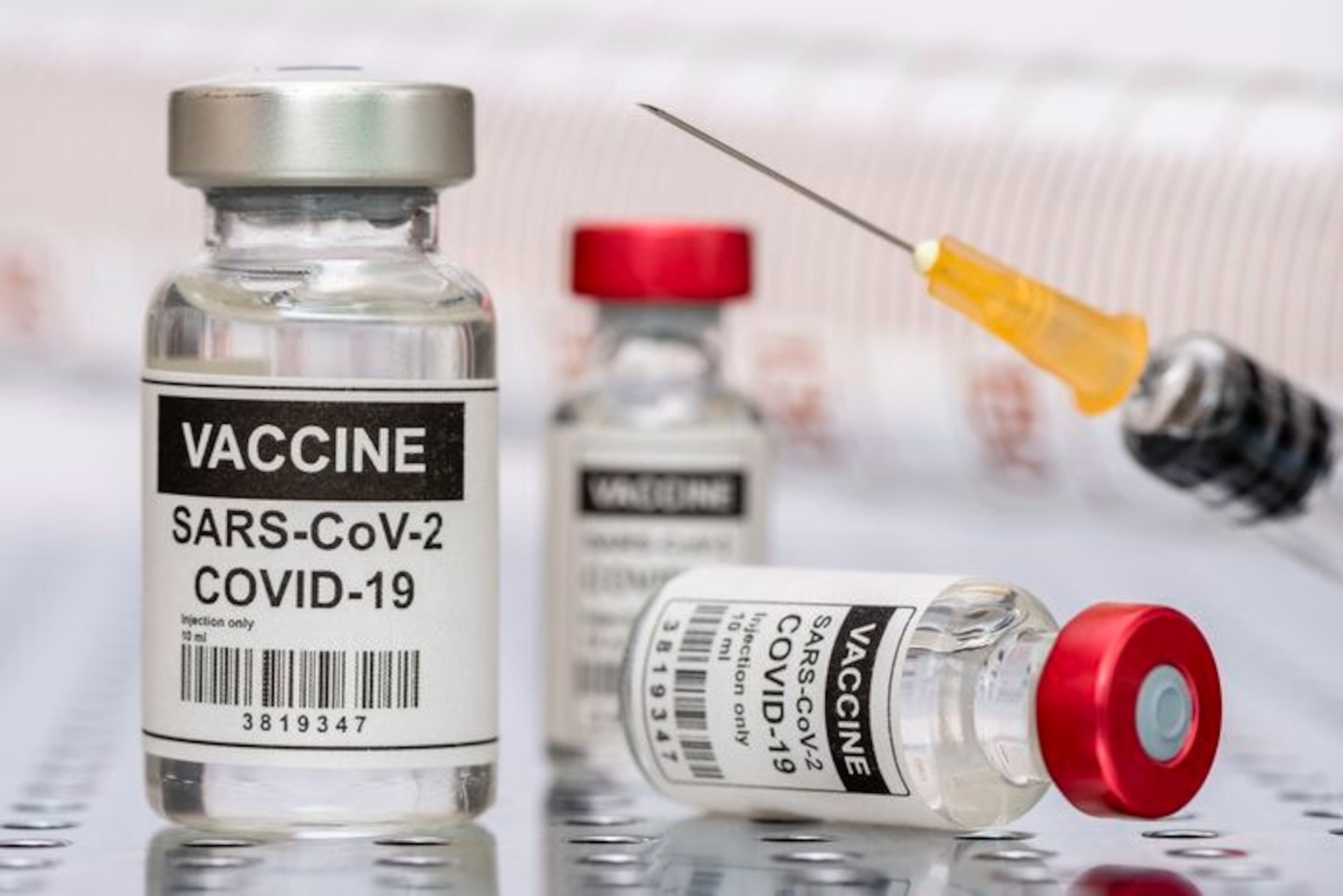Power Poll: Ga. leaders back some COVID-fighting efforts

Most community leaders in Georgia say business owners should require employee vaccinations if they believe their workplace safety is at risk.
Those same leaders are not so sure what direction schools should be taking as a new school year begins amid another surge in COVID-19 infections. About half believe that is an issue best left to each local school district, according to the newest Georgia Power Poll.
The poll was taken by The Atlanta Journal-Constitution from Aug. 16-19.
The three-question survey was sent via email to civic, political, and business leaders in Atlanta, Athens, Augusta, Columbus, Macon, and Savannah, with 141 or about 22% responding. The survey does not have the precision of a scientific poll and is meant only to provide insight into the thinking of influential leaders across the state.
The latest Power Poll was conducted in the same week it was disclosed that, since the start of the pandemic, Georgia has had more than 1 million confirmed coronavirus infections. It also took place as the Biden administration promised to use federal leverage to require nursing homes to have vaccinated workers and directed U.S. Secretary of Education Miguel Cardona to, if necessary, “use all his authority” and legal power to deter states from banning universal masking in classrooms.
Some poll participants, including former Atlanta Mayor Shirley Franklin and state legislator Angelika Kausche, a Johns Creek Democrat, elaborated on their responses in emails to Power Poll.
Franklin said she believes vaccinations, social distancing, mask wearing, and regular testing should be mandatory in schools, businesses, and government offices for everyone 12 years old and older, with exemptions for individuals with medical or religious concerns.
“The dangers of an extended pandemic can be minimized -- and maybe eliminated -- by implementing such policies,” she said.

Kausche said she believes FDA approval of the current vaccines will help, but not significantly.
“Employer vaccine mandates would go a long way in increasing vaccination rates and ultimately be more effective at this point,” she said. “No matter what happens, the divisive climate around this subject won’t go away until the pandemic will go away.”
Poll respondents weighed in on the debate over how far employers should go to encourage or mandate that their workers be vaccinated, given the desire to keep the state’s economy rolling.
About 62% said employers should be able to require vaccinations if they deem that a prudent course of action to protect the safety of their workplace. Another 29% said employers would be better off trying to persuade workers to receive the vaccination, rather than making that a condition of employment. Less than 10% said employees should have the personal choice to vaccinate or not.
As far as what to do to protect the safety of public-school students, teachers and staff, a slight majority (50.3%) favor leaving it to local school systems to establish the tactics for managing the coronavirus within each school. About 39% said the state should take a stronger role in pandemic policymaking as it relates to schools, while nearly 11% said the status quo should be sufficient.

The final question asked whether community leaders expect FDA final approval of the current COVID vaccines to alter Georgia’s low vaccination rate. Less than 10% see it as a game-changer. But 69% believe it will help at the margins and encourage those who were on the fence, although they do not see the approval dramatically changing Georgia’s overall vaccination rate. Slightly more than 1 in 5 said they do not believe FDA approval will make much difference, given the entrenched attitudes on vaccination.
Nathaniel Smith, founder and chief equity officer for the Partnership for Southern Equity, said the health and safety of Georgia’s children has become “a political wedge issue.”
“There was a time when our children’s well-being was a unifying issue,” Smith said. “… How low will politicians go to get reelected?”
Decatur City Commissioner Kelly Walsh said she supports employer vaccine mandates. She said they “would go a long way to keeping the economy running and incentivize more people to get the vaccine.”
State Rep. Mark Newton, R-Augusta, said more research is needed, based on the experiences in India and the United Kingdom with the delta variant’s spike and then drop-off.
“Since both vaccination and natural immunity (from COVID infection) potentially could be the reason for the rapid drop-off, it seems imperative that the U.S. get a more accurate public health measurement of both vaccinated and those with natural immunity,” Newton said. “This would then better inform accurate science-based recommendations on mandatory masking, school closures, lockdowns, etc., which all have distinct effects on lives and livelihoods. With billions in taxpayer funding, we need CDC and NIH to prioritize this research.”

COMMENTS
State Rep. Mark Newton, a Republican and doctor from Augusta: “Before becoming the prominent COVID infection in the U.S., the delta variant spiked tremendously in India and then the UK. But the rapid drop-off in delta COVID cases there has also been dramatic.”
State Rep. Angelika Kausche, a Democrat from Johns Creek: “I believe FDA approval will be helpful in convincing more people to get vaccinated, but, still, it most likely would only drive a small increase in vaccination rates.”
Shirley Franklin, former Atlanta mayor: “I believe the governor should follow the CDC guidance and the advice of Dr. Fauci and the vast majority of the country’s medical experts.”
Randy Lewis, managing director and co-owner of Fitzpatrick & Lewis Public Relations: “Over the last 18 months, the public has plainly observed that the experts seem to be guessing a lot and contradicting each other. And, for the most part, people don’t even get the seasonal flu shot even though 30,000 to 75,000 people die each year from the seasonal flu. Perhaps the best course is constant encouragement. Forcing people to act rarely has good consequences.
POLL RESULTS
Georgia’s public schools are reopening amidst another rise in COVID-19 infections. What seems the best strategy to help keep safe students and school faculty/staff?
50.3% — Leave the specifics of devising and managing coronavirus tactics to local school systems.
39% — The state should take a stronger role in directing policy around things such as mask mandates and quarantine specifics.
10.6% — The COVID-19 risk to school-age children seems low enough that the status quo is sufficient.
Full FDA approval of COVID-19 vaccines is expected soon. How do you think full approval would affect Georgia’s relatively low vaccination rate?
8.6% — It would be a big factor and likely encourage many skeptics to get vaccinated.
68.6% — It could help in the margins to encourage people on the fence, but likely wouldn’t move the vaccination stats very much.
22.9% — It would make little difference, given entrenched attitudes on vaccination.
Workplaces have struggled with how far to push in encouraging – or mandating – that workers be vaccinated. Given the desire to keep Georgia’s economy rolling, which seems the best path?
62.1% — Employers should require vaccinations where they deem it prudent to protect workplace safety.
29.3% — Workplaces are better off trying to persuade people on vaccination, rather than mandating it as a condition of employment.
8.6% — To vaccinate – or not – should be a matter of personal choice.


